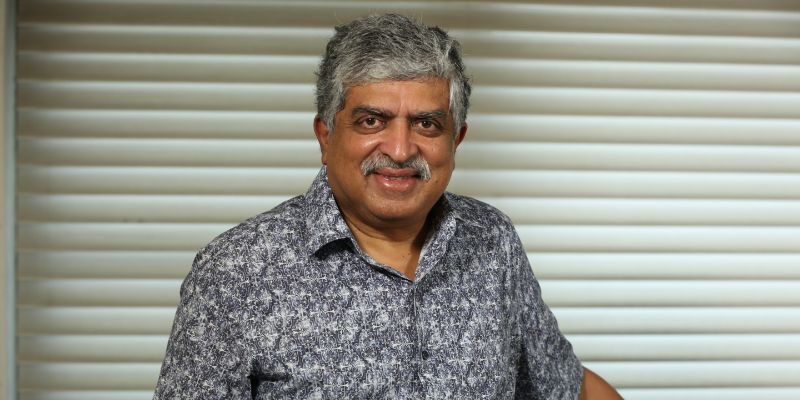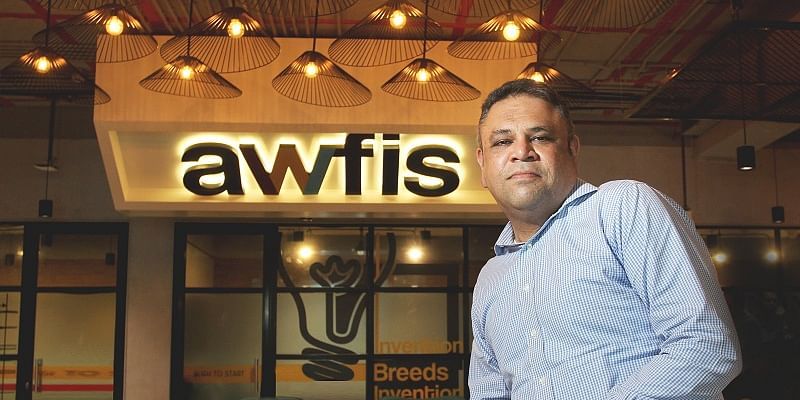This Sequoia-backed edtech startup by IIT Delhi alumni uses interactive videos to solve maths doubts
After several years of running brick-and-mortar coaching classes, the husband-wife duo of Tanushree Nagori and Aditya Shankar realised that tech is essential for creating large-scale impact. Thus, began Doubtnut, a doubt-solving app which has now grown to five million MAUs.
One of the biggest barriers to the adoption of online courses in India is doubt solving. A 2017 Google-KPMG report found that “real-time query resolution” topped the list of problems for India's edtech firms when it came to acquiring and retaining customers.
While there are scores of online learning platforms today, 'doubt solving' remains the bane of their existence. IIT Delhi alumni Tanushree Nagori and Aditya Shankar set out to fix this with Doubtnut, a startup they founded in 2017.
It offers instant video solutions for doubts raised by students on an app-based platform. Prior to this, in 2009, the husband-wife duo had set up Class 21A, where they taught maths and science to students between Classes 9 and 12.
1562063387320.png?fm=png&auto=format)
Doubtnut was founded in 2017 by IIT Delhi alumni and husband-wife duo Aditya Shankar and Tanushree Nagori.
While Class 21A flourished in the years it ran, the absence of a technology component meant that it wasn’t scaleable beyond a point. Add to that, the dismal student-teacher ratio in India, and it was almost impossible for a brick-and-mortar classroom to cater to all students and their queries.
“We realised that we weren’t able to impact students at scale. Even when they were spending over Rs 1 lakh per year in coaching classes, it was not possible to solve all their doubts,” Tanushree Nagori, Co-founder and CEO, Doubtnut tells YourStory.
“We knew we had to involve tech if we were to create impact in everyone’s life, and not just among the privileged ones,” she says.
Solving doubts at a scale
Gurugram-based Doubtnut was incorporated in 2016 and its app launched in October 2017. The startup’s initial focus was on mathematics because that appeared to be most doubt-ridden subject for students in Classes 6-9 as well as those preparing for IIT-JEE, and other entrance tests.
(Very soon Doubtnut will also be launching video lessons for physics, chemistry, and biology to complete the ‘science triangle’.)
In less than two years, the startup claims to have recorded over five million monthly active users (MAU) on its platform. About 12-13 million doubts are raised every month, including a peak of 400,000 each day, and more than 4,000 videos are churned out daily. The average video length is 4.5 minutes.
Doubtnut reveals more than 90 percent of its users are from non-metros - a direct outcome of being available in 11 regional languages. Since 2018, its app has consistently featured in Google Play Store’s top 10 in the ‘Education’ category.
Additionally, it has about two million subscribers on YouTube, and is already getting more than 20,000 queries via WhatsApp, where it launched in June.

Tanushree says,
“We have created the world’s biggest repository of maths videos. There may be many doubts, but the universe of doubts is also finite. We can say that we have covered all possible maths doubts.”
“The entire app experience is automated, and students can get their doubts resolved in two seconds. On WhatsApp, it might take five to seven seconds because we do not have control over their servers,” she adds.
How the platform works
Doubtnut uses complex Artificial Intelligence (AI), Machine Learning (ML) algorithms, and image recognition technology to show video lessons in response to photos of text problems.
Essentially, students have to snap a picture of the question and upload it on the app. The platform then crunches the text using Optical Character Recognition (OCR), matches it with pre-recorded content in its database, and directs the user to a solution video.
Doubtnut claims 80-90 percent platform accuracy. The remaining 10-20 percent can be achieved by posting a query to human tutors available on the app. Sometimes, the startup even takes a note of doubts that could not be solved, and creates explainer videos within a few hours.
1561993040167.png?fm=png&auto=format)
The average time spent by users on the platform is 17-20 minutes and can even go up to 40 minutes for highly engaged ones. These typically include students in Classes 9-12 and JEE aspirants. “We get maximum traction from these student segments,” Tanushree reveals.
She further shares that the student demographic on Doubtnut is diverse with children of “farm labourers and cement factory workers” also accessing the app.
“We capture profiles of parents too and it is amazing to see how the internet has impacted people’s lives. A lot of credit for this surely goes to Jio,” she adds.
Riding the edtech boom, and future growth
Globally, edtech investments are soaring, with 2018 witnessing funding that amounted to $16.3 billion, according to Metaari (a tech research firm). Of this, Chinese edtech firms accounted for about 44 percent, while India and Israel were the second and third largest investee markets for the sector.
A separate research by Tracxn states that there are over 3,500 edtech startups in India now. Tencent-backed Byju’s is, of course, the poster child, while others like Toppr, Unacademy, Simplilearn, and Vedantu are making a mark too.
Doubtnut reckons that its regional language offering stands out, and that is what has attracted quality investors to the startup.
In April, it raised Rs 23 Cr in a Pre-Series A round from Sequoia India’s Surge, and made it to its first cohort of 17 "incredible early-stage startups".
Doubtnut's earlier investors Omidyar Network and Waterbridge Ventures - that had put money in 2018 - along with AET Japan also participated in the round.
The startup intends to use the fresh capital to expand its product and language portfolio, influencer network, and team. It currently employs 35 people and works with about 150 interns who contribute in the video-making.
Funds didn’t come easy though.
Tanushree shares, “Byju’s, Toppr, and a few others set the precedent in English education videos. There was a gap in the Hinglish/Hindi language space, and that is the opportunity we saw.
She adds,
"But, it did take us a while to convince investors that doubt-solving was not just a feature but the core of the offering. One of them even told us that our videos weren’t ‘classy’ enough. But we knew we wanted to build a product for people outside the big cities.”
WaterBridge was the "earliest believer" in Doubtnut, she says, and it saw a ‘huge potential’ in doubt-solving. According to industry estimates, over 1.5 billion doubts are raised by students everyday on online learning platforms in India.
Hence, the sky's the limit for startups like Doubtnut.
Its next goal is to achieve virality on YouTube and WhatsApp. “I think that will be the next growth driver,” says Tanushree, adding, “That is why we are now reaching out to influencers.”
Once that happens, Doubtnut might even roll out ads as well as a subscription service. But, for now, it continues to ride on investor capital.






1562063387320.png?mode=crop&crop=faces&ar=2:1?width=3840&q=75)
1550491304900.jpg?fm=png&auto=format&h=100&w=100&crop=entropy&fit=crop)







